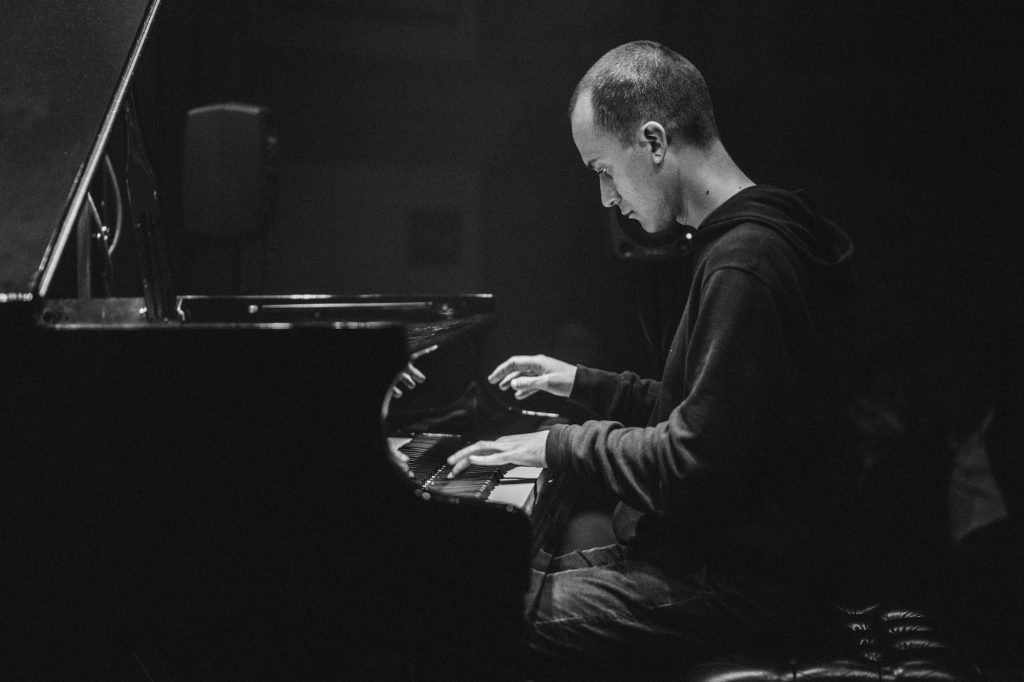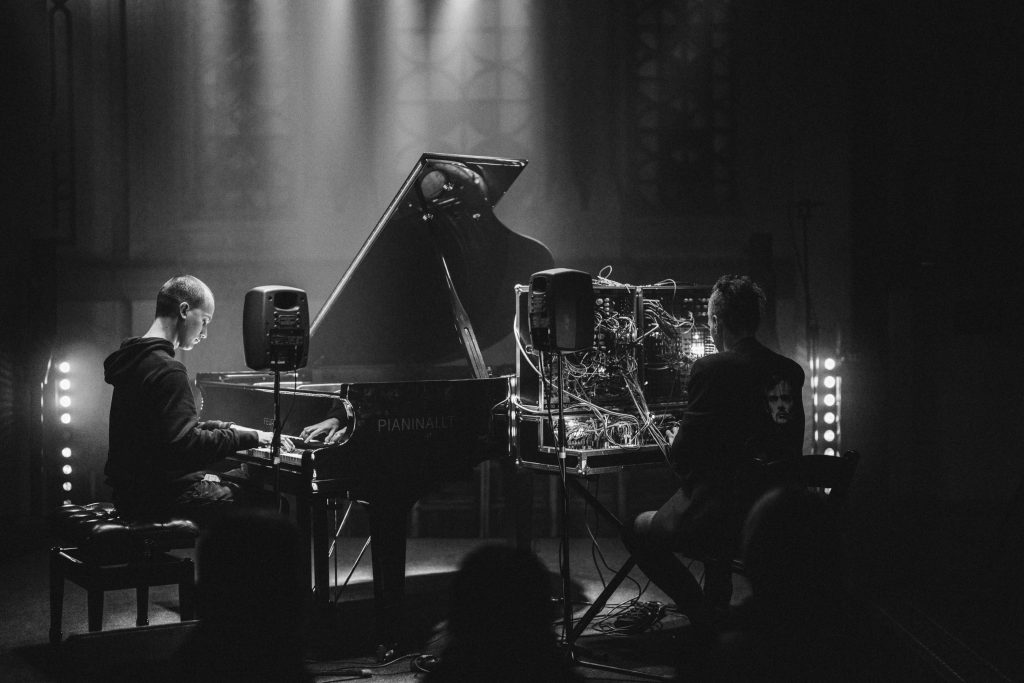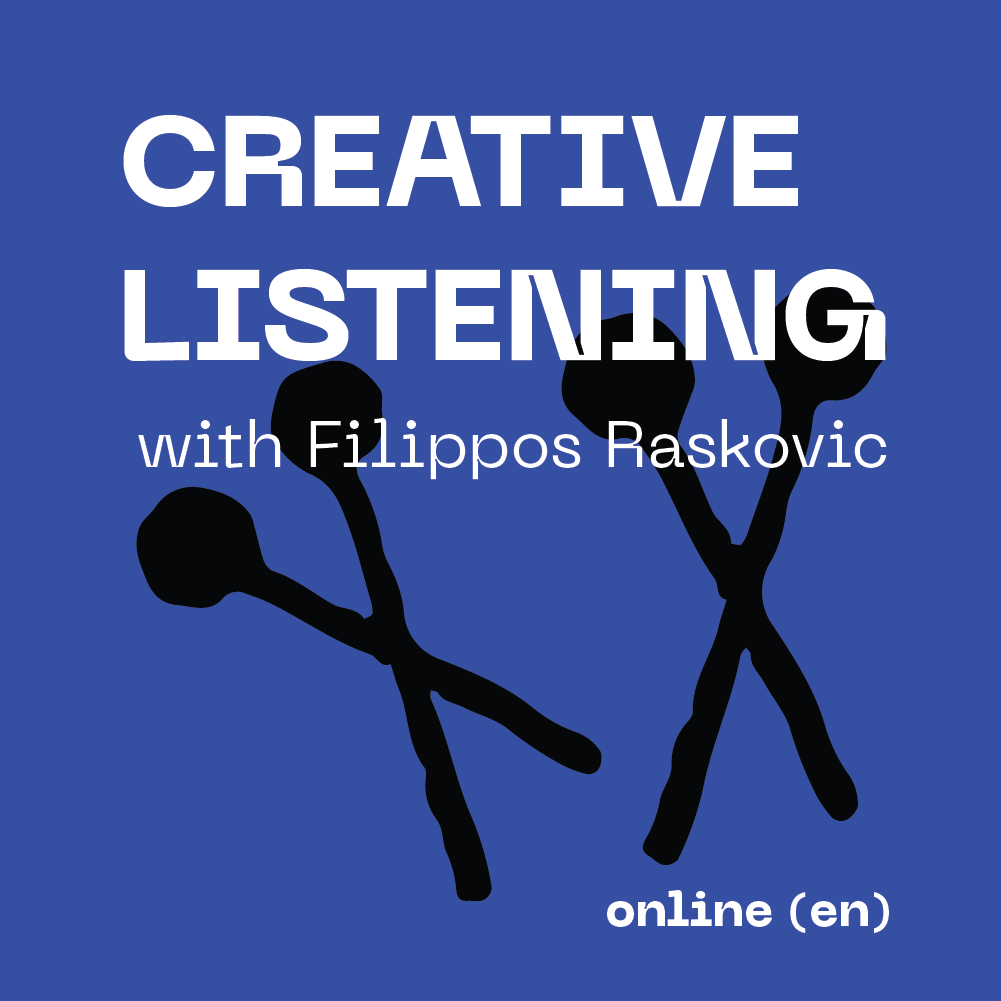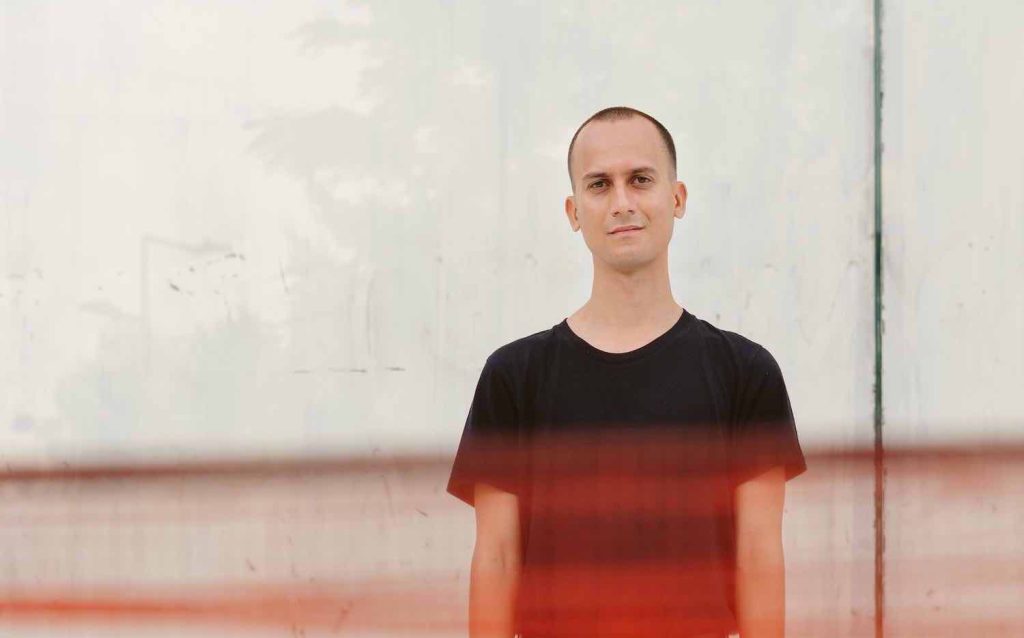People experience music differently, but in some ways music connects minds. It is the way how we understand and analyze it. Filippos Raskovic invites people to discover new ways to comprehend and listen to music. Filippos will start teaching creative listening course online already next week, on November 28th.
Muzikalkė talks with composer and improviser, Radio Vilnius resident Filippos Raskovic: let’s search for different ways to creative listening together.
– Most people are listening to music for simple reasons: they like it, they connect with it emotionally, and just enjoy it. You, as a professional musician, can you listen to music without analyzing it intellectually?
I find myself listening to music also for the simple reasons that you mention. I have albums or tracks that bring back nostalgic memories from the past or childhood or a particular place or group of friends. Connecting with music emotionally either on one’s self or with other people is one of its wonderful traits and has complexity in its meaning. However, as musicians, we are very often put in a place to either deeply understand aspects of the music that we are listening to. In general terms, this happens either by analyzing theoretical: structures, harmonies, arrangements, instrumentations, voicings, etc, or by finding deeper connections to their historical, and sociopolitical contexts . There are other ways but I find that these are the ones I mostly think about and help me a lot in my practice. Finally, playing music and constantly being in a place to think about it and engage with it I feel puts me in a position of practice. The more you listen or do something the more details you will find and the deeper you will want to go. Finally, I feel I can definitely disconnect and indulge in music I really like or have fun with!
– Can you explain more what does it mean “active and analytical listening”?
Active and analytical listening is a general term that I wanted to call the course. Active listening means that we are going to put ourselves in the position to continuously listen out for the many elements that music can give us. Through listening sessions and conversations each person can find their own way to dedicate time in their headspace to listening and thinking about music. Analytical listening works in that headspace of active listening but focuses more on the, let’s say, theoretical parts of the music. Focusing on the component and elements that make the particular piece of music sound as it does

– You are a composer and improviser, also a resident at Radio Vilnius. Can you tell us more, what was your personal journey to creative listening?
I have very early memories of listening to music with my family. Actually had active listening without realizing it at the time, because I was a baby, with my mom. She would play albums, either classical music or weird (at the time) experimental music like Frank Zappa or Mahavishnu orchestra. She had the wonderful idea to narrate stories that she would make up but connect them to the instruments, sounds, and rhythms of the music, perhaps she was inspired by Prokofiev’s “Peter and the Wolf” which dies the same and used to scare the living hell out of me. I feel this early attachment to sound as a narrator still stays with me today.
Then my oldest best friend Giannis Arapis, who is a wonderful guitarist, used to go to record shops and dig for hours and listen to music together. This sparked our endless curiosity to always look out for more music. We also loved the trivia surrounding each album or artist and through reading about it we would go into these endless wormholes digging deeper and finding more. With Giannis, I found it wonderful how we would not restrict ourselves to a particular genre but would get different obsessions every couple of months. Other elements added to this creative listening journey, such as studies, listening to a lot of independent radios, going to either DJ sets or live gigs, but I feel these two were the building blocks.
I never had the chance to do a radio show live and I am grateful to Radio Vilnius for having me there. Somehow through the experiences above it feels really natural and intuitive to create the shows and hopefully, people enjoy them as much as I do.
– Do you think it depends on the genre and how we experience music, intellectually or emotionally?
A genre of music can be flexible and not necessarily define how the music will affect us emotionally or intellectually. However, they definitely have a very important role, not only in helping us in many ways to find music that we want to listen to much faster. Genres also help us identify the audience, the place, the time, and the origin of that particular musical genre. They complete the experience of listening to how it sounds and also identifying the complexities and nuances that separate it from other genres. We are not dependent on the genres, in the end, it’s how it sounds, but genres are a very useful and sometimes powerful principle.
– Why do you think it’s important to analyze and understand music from an intellectual point of view?
By doing so one can find and unlock ways that they want to interact, understand, and find connections with music and principles from other fields. There are so many ways that one can listen to music and what one wants to listen out for. Perhaps the word analyze gives the impression that it has to be a theoretical deep analysis of structures and harmonies and sucking out the enjoyment of listening to music. But that is up to each person’s needs and curiosities. It is not a necessity, others have a passion more with literature and the same, others for cooking, others for gardening, and others with all of the above at the same time.

– Can you tell more about the course you will be giving at “Muzikalkė”. To whom would you recommend this course?
The course is open to everyone, either professional musicians or amateurs or people who have never touched a musical instrument. The course is an open platform that through open questions, examples and personal insights from my own practice each participant can take away ideas and find their own voice and ways how to listen to music.
– What is your one tip for musicians and non musicians on how to listen and enjoy music?
I cannot say there is a way to listen to music. I do not believe that there is a recipe for listening to music in a particular way that will give different results.
What I would like to say, and try to say to myself as well, is to always be open to music and ideas that you do not know. One can easily get stubborn and hold tight to music they are already familiar with. I find myself doing the same and push myself to search across many genres, either by asking around or searching.
Find more about online course Creative Listening by Filippos Raskovic HERE:


